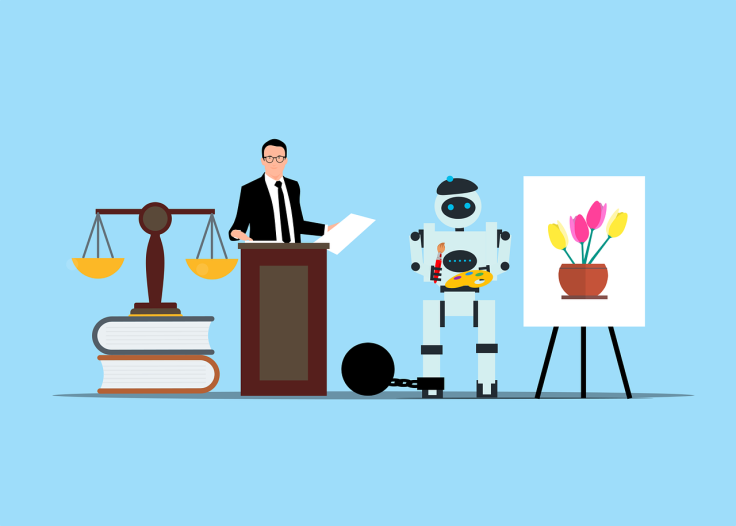
Artificial intelligence and data provide a new focus for the legal profession. On these matters, the law is changing quickly. Consequently, businesses must surround themselves with professionals who can assist them in putting the law and respect for people at the center of their technological progress. Artificial intelligence is developing quickly, and thus, it will have a massive impact on many aspects of the lawyer for artificial intelligence.
Presentation and Missions
He oversees contracts (drafting, confirming, and safeguarding); she responds to legal inquiries from staff and management and adheres to established protocols. To consider the operational elements of projects and guarantee compliance, she frequently participates in technical discussions with specialists. It receives an example of a valid application: The legal material on the security of personal data that Internet users must have access to, for example, in the event of an online sale, is created by the data and AI lawyer.
Business Implications
Any use of data and AI, regardless of industry, must adhere to a legal framework. All industries, including agriculture, the chemical industry, and the service sector, must focus on bringing their technology initiatives into compliance to launch and, most importantly, grow completely safe.
Ethical Implications
There are threats to freedom, security, and confidentiality for an artificial intelligence that complies with the law. As long as AI and data are used responsibly and by the law, they may be revolutionary tools for good. Artificial intelligence programs incorporate all aspects of artificial intelligence and its implications, including technical, technological, commercial, ethical, and legal aspects, into their educational curriculum. Future engineers will get prepared to tackle the myriad issues facing the economy and society. They relate to harnessing the potential of data and artificial intelligence through this hybrid, worldwide program. A doctorate or PhD program can finish it.
Important Skills
Naturally, having a legal background is crucial, but so is having a solid understanding of AI and data subjects. Experts can be addressed by the data and AI lawyer using pedagogy. Pragmatism unites these two realms. It's also necessary to listen. Analytical reasoning and predictability have become essential for the role of data and lawyers in artificial intelligence. Laws follow technology developments closely, which helps to set the stage early to stay ahead of the curve on future legal rules.
Use of AI in the Legal Profession
AI has several advantages for the legal sector, including:
Prepare and review contracts:
AI can create legal papers, including demand letters, briefs, and contracts, and it might offer wording recommendations for such documents. Artificial intelligence (AI) may examine contracts and paperwork to find and fix issues like missing, inconsistent, or incorrect language.
Litigation document review and organization:
Document output in complex commercial legal proceedings and related discovery can be large, sometimes numbering in the tens of thousands or more. AI can assist lawyers in locating and identifying pertinent documents, materials about a specific topic or issue, a person's name, a place, a date, or buzz phrases, for example, and let lawyers avoid the tiresome task of reviewing each document separately. In addition to being time-consuming and costly, human inspection carries the danger of essential papers getting mistakenly omitted.
Due diligence in other deals, such as M&A:
Equivalent to document review in court, AI tools can help lawyers find and locate documents related to mergers and acquisitions. Attorneys can get specific documents related to due diligence, such as those about a given subject matter, location, or agreements with an exact phrase or condition, by using artificial intelligence (AI) technologies.
Legal research:
Fact patterns, legal conclusions, and court rulings are only a few of the vital components of cases and verdicts that AI may summarize. Artificial intelligence (AI) and legal research tools enable lawyers to swiftly search through large databases for relevant facts, laws, regulations, precedents, and case law specific to a jurisdiction.
Predictive case analysis:
AI support can aid legal professionals in estimating a case's possible worth and forecasting how a specific issue will turn out. Predictive coding may also be used to examine pertinent data and information and identify possible hazards in ongoing or impending litigation, resulting in more informed judgments and risk assessments for lawyers and their clients.
Document administration and organization:
A lawyer's legal files, such as case files, contracts, electronic conversations, etc., may be stored and arranged using AI-based document management software. Finding, managing, and protecting essential papers and large volumes of information may be considerably facilitated and expedited by AI-based organizations.
Judiciary decisions:
Artificial Intelligence has been used to support courts in making judgments about bail and punishment.
Conclusion
Artificial intelligence is revolutionizing legal education and the legal industry by improving research and analysis, automating processes, and giving legal professionals insightful information and assistance. Although artificial intelligence (AI) cannot fully replace human attorneys' experience and judgment, it may increase productivity, accuracy, and access to justice. Legal experts and educators must embrace these technological developments and adjust to the shifting legal market as artificial intelligence (AI) continues to grow.









